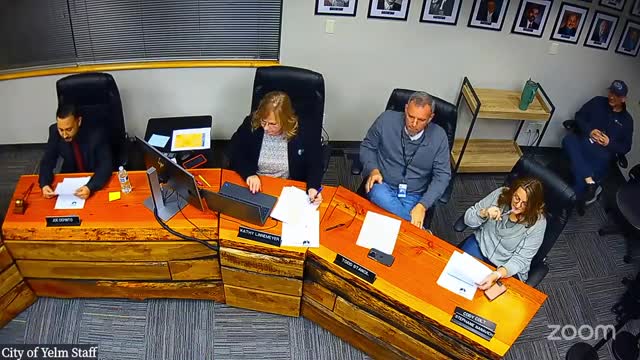Yelm public safety committee: three recruits, equipment upgrades and Flock camera data discussed
Get AI-powered insights, summaries, and transcripts
Subscribe
Summary
The Yelm Public Safety Committee reported progress on police hiring, equipment upgrades, expanded training and Flock camera system data at the Jan. 14 council meeting.
The Yelm Public Safety Committee reported staffing, equipment and technology updates at the council meeting, including progress toward adding three police officers, plans to update weapons and TASERs using law enforcement tax funds, expanded training, and data from the Flock automated license-plate reader system.
A committee representative said the department is recruiting three officers: two candidates have passed interviews and are proceeding through background checks, and a third candidate needs to finish polygraph testing and academy scheduling. "It looks like we may get lucky and have the three new officers soon," the committee speaker said.
The committee also reported a budget approval to update equipment using the law enforcement tax. "They are planning to update the weapons, TASERs, as well as ammunition," the report said; staff characterized the planned TASER models as newer-generation devices intended to be more effective.
Training plans for 2025 discussed by the committee include expanded defensive-tactics training (building on judo basics), de-escalation emphasis and additional firearms/reload drills at the range. The committee said officers favor nonlethal options and that training will emphasize de-escalation.
Committee members reviewed data from the Flock camera system. The presentation said the system has processed approximately 509,800 vehicle reads since installation and that 78 license plates appeared on a "hot list" used in active inquiries. The system currently records plates for vehicles entering Yelm; four new cameras planned for installation are intended to capture exiting traffic as well. A staff speaker said non-criminal uses of the data are possible for planning, but clarified that official traffic counts used for grant applications are produced through different, formal counts.
Court operations updates followed: city court staff are digitizing archives, considering how to continue passport services amid staffing limits, recruiting a second public defender position and planning monthly training with police to improve citation-to-court processes.
Committee speakers emphasized data retention limits and privacy controls. A staff member said the Flock data are held for about 90 days unless preserved for an active case and that the system stores license-plate reads and a card-description field; the speaker said there is no driver-identifying imagery in the dataset presented to council.
The committee recommended further interagency coordination to maximize the system’s usefulness while respecting data-retention and operational rules. Councilors asked staff to explore whether the camera-derived vehicle counts could supplement official traffic counts for planning, and staff agreed to look into that possibility.
